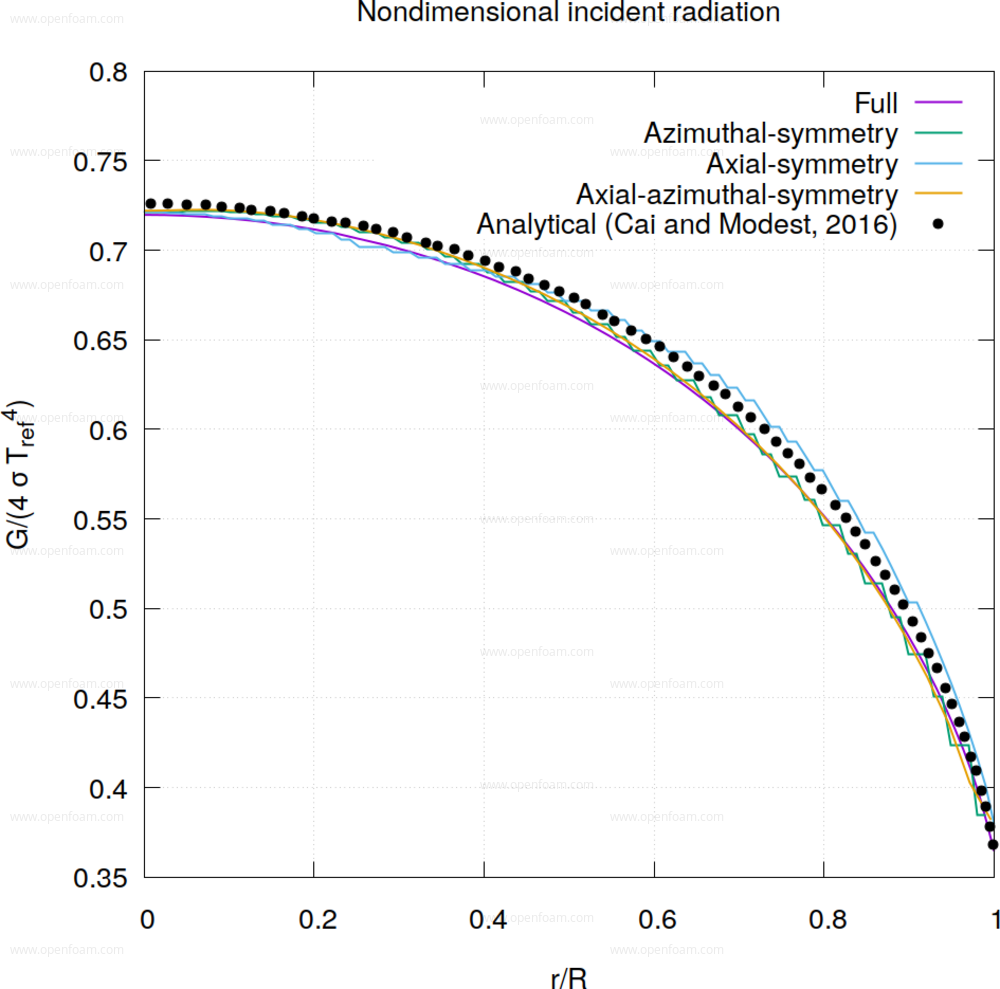v2306: New and updated boundary conditions
The fvDOM radiation model can now be applied to axisymmetric and symmetry-plane set-ups using the new specularRadiation boundary condition.
A minimal example of this boundary condition can be seen below:
{
// Mandatory entries
type specularRadiation;
// Optional entries
interpolate <bool>;
// Inherited entries
patchType <word>;
...
}
The illustration below shows a verification of the condition in terms of internal non-dimensional incident radiation on four different geometries:

Source code
References
- Standard model:
- Kumar, P., & Eswaran, V. (2013). A methodology to solve 2D and axisymmetric radiative transfer problems using a general 3D solver. Journal of heat transfer, 135(12). DOI:10.1115/1.4024674
Merge request
Attribution
- OpenCFD would like to acknowledge and thank Hitachi Energy for sponsoring the development, and Bernardo Galletti and Marcelo Buffoni for elaborate discussions.
The new uniformMixed boundary condition complements the existing uniformFixedValue and uniformFixedGradient conditions.
The condition is used to define a mixed boundary condition and uses functions to define the values, e.g.
{
type uniformMixed;
uniformValue constant 0.2;
uniformGradient constant 0.2;
uniformValueFraction
{
type sine;
...
}
}
However, the boundary condition permits lazy definitions so that it is also possible to define only one of uniformValue or uniformGradient and have the other entries implicitly defined.
Since the functions used by uniformMixed also include expressions, this new boundary condition can be used as a more flexible form of the existing exprMixed boundary condition, which will be deprecated and removed in the future.
Source code
Tutorial
uniformFixedValue, uniformFixedGradient, and uniformMixed boundary conditions are now available for Finite Area calculations.
These boundary conditions add function and expression support to Finite Area. The timeVaryingUniformFixedValue boundary condition will be deprecated and removed in the future.
Source code

